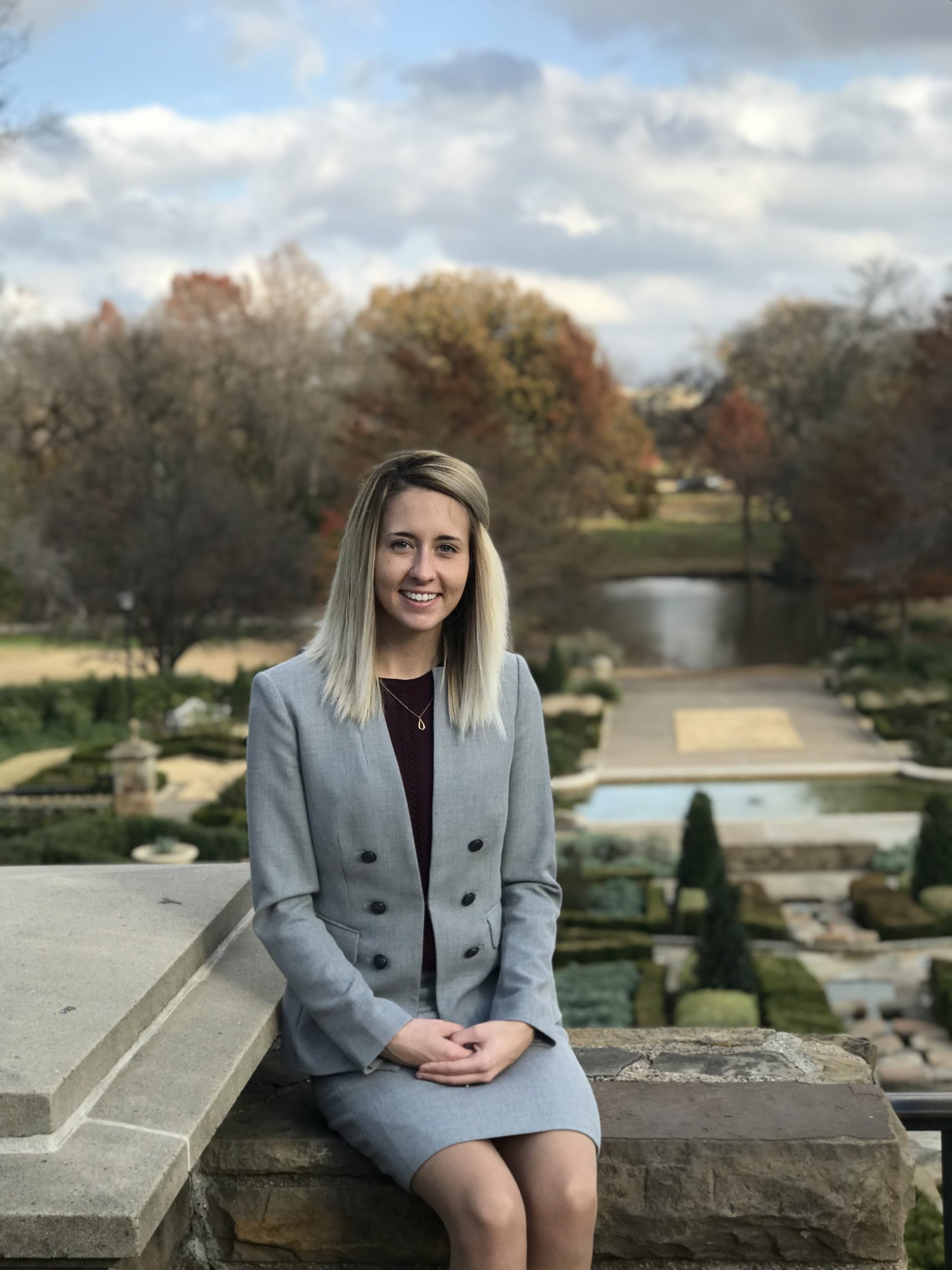The University of California-Riverside School of Medicine is located in Riverside, CA. It’s a newer school, having received its full accreditation as a medical school in 2017. But its roots began in 1997 as UCR/UCLA. The school’s mission and purpose have grown with it over the years. Students are encouraged to establish their medical practice in California and especially in Inland Southern California. There are underserved populations in the area. Throughout the school’s curriculum, you’ll see its values demonstrated. UC Riverside believes in “inclusion, integrity, innovation, excellence, accountability and respect.”
If UC Riverside Medical School piques your interest, keep reading this guide. We’ll cover everything you need to know to get in, including:
- Medical programs offered at UC Riverside Medical School
- Cost of attendance
- Pre-med requirements: your GPA and pre-requisite courses
- Submitting your AMCAS primary application and your UC Riverside secondary application
- UC Riverside Medical School Letters of Recommendation
- Secondary essays with samples
- Preparing for your interview, including the interview format
International Medical Aid is here to help you through our med school admissions consulting. If you need help going through UC Riverside’s requirements, don’t hesitate to reach out to us. We’ll be happy to schedule a time to meet with you and help you decide if it’s a school you want to attend.
Medical Programs
- Traditional MD Program
- Doctor of Medicine / Doctor of Philosophy Combined Degree
- Doctor of Medicine / Master of Public Policy Concurrent Degree
MD Program
The first two years of your time at the University of California-Riverside School of Medicine will cover “the science of human biology and disease” and fundamental clinical skills. You’ll go through five instructional blocks during your first year and begin the Longitudinal Ambulatory Care Experience that will continue into your second and third years at UC Riverside.
After completing your textbook education during your second year, you’ll transition to core clerkships in your third year and selectives in your fourth year. You can also explore the Designated Emphasis Program if you have a passion for a specific medical field.
Let’s break it down by looking at the courses you’ll take each year.
Year 1
- Block 1: Foundations of Medicine I covers:
– Principles of Genetics
– Molecular, Cellular and Developmental Biology
– Cell Cycle Regulation
– Gene Expression
– Protein Processing
– Signal Transduction
– Ion Transport and Action Potentials
– Genetics
– Embryology
– Cancer Biology
– Immunology
– Pharmacology - Block 2: Cardiovascular, Renal and Respiratory Medicine I covers:
– Cardiovascular, Renal, Respiratory and Autonomic Nervous Systems
— The response of those systems to stress and disease
– Lab experiences in…
— Electrocardiography
— Blood pressure regulation
— Renal function
— Body fluid composition and volumes
— Pulmonary function - Block 3: Gastrointestinal, Endocrine and Reproductive Health I covers:
– Gastrointestinal Physiology
– Medical Biochemistry
– Molecular Endocrinology (including metabolic disorders and human nutrition)
– Anemia
– Clotting Disorders
– Hepatitis
– Alcoholic Cirrhosis
– Diabetes
– Celiac Diseases
– Osteoporosis
– Disease of Steroid Metabolism
– Reproductive Disorders
– Thyroid Disorders
– Pituitary Disorders
– Pharmacokinetics - Block 4: Musculoskeletal Medicine covers:
– Structures and functions of the peripheral and musculoskeletal symptoms
– How the brain and spinal cord receive sensory input
– How the brain and spinal cord control skeletal muscle
– Neurology
– Upper and lower extremities - Block 5: Clinical Neurosciences I covers:
– Structures and functions of the central nervous system, including visual and auditory systems
– Head and neck
– Neurochemical basis of psychiatric disorders and psychology
– Neurogenetics
Year 2
- Block 6: Foundations of Medicine II covers:
– The pathophysiology, pharmacology, diagnosis and treatment of diseases
— Bacterial, viral, fungal and parasite-mediated infectious diseases
– Host defense and immunity
– Immune system disorders
– Topics in clinical hematology and oncology
– Epidemiology and clinical reasoning skills - Block 7: Cardiovascular, Renal and Respiratory Medicine II covers:
– Continuation of pathology and pathophysiology
— Hypertension
— Developmental disorders
— Therapeutics
— Pharmaceuticals and other treatments
— Clinical trials and epidemiology
— Common cancers
— Common infectious agents and therapeutics - Block 8: Gastrointestinal, Endocrine and Reproductive Health II covers advanced clinical perspectives in:
– Anatomy
– Biochemistry
– Pathophysiology
– Physical diagnosis
– Imaging associated with endocrinology
– Reproductive health and disease
– GI diseases
– Gender-specific diseases
– Skin manifestations of systemic disease
– Common infectious diseases and therapeutics
– Common cancers
– Prevention
– Nutrition - Block 9: Clinical Neurosciences II covers advanced clinical perspectives in:
– Neurology
– Neuropathology
– Psychiatry
– Neuropharmacology
Study for and take USMLE Step 1
Year 3
- Block A: Internal Medicine and Surgery (Part of the Longitudinal Learning Program)
- Internal Medicine
– Chest pain
– CAD
– Arrhythmia
– CHF
– Fluid and Elect Disorders
– Acid Base Disorders
– AKI
– CKD
– Cough
– COPD
– Dyspnea
– Asthma - Surgery
– General Surgery, including pre-op and post-op
– Infection
– Antibiotics
– Fluid and Electrolytes
– Liver
– Bowel
– Burns
– Tumors
– Calculi
– Shock
– Trauma Care
The framework of your core clerkships is designed to prepare you for USMLE Step 2, a critical exam you must take to practice medicine after you graduate.
- Block B: Family Medicine, OB/GYN, Pediatrics
- OB/GYN Didactic Themes
– Prenatal Care
– Fetal Development
– Physiologic Adaptation to Pregnancy
– Normal Labor and Delivery
– Post-partum
– Puberty
– Infertility
– First and Third Trimester Bleed
– Pre-eclampsia
– Contraception
– Amenorrhea
– Dysmenorrhea
– Endometriosis
– Pelvic Mass - Pediatric Didactic Themes
– Congenital Syndromes
– Jaundice
– Newborn fever
– Breastfeeding
– Prematurity
– Group B Strep
– Fetal Alcohol Syndrome
– Immunizations
– Abnormal Growth
– Nutritional Deficiency
– SIDS
– ADD
– Autism Spectrum
– Abuse and Injury
– Febrile Sz
– Meningitis
– FUO
– Febrile exanthems
– Organomegaly
– TB
– Hematuria
– Hypotonia
– Acute Pain - Block C: Emergency Medicine, Psychiatry and Neurology
- Emergency Medicine
– Resuscitation
– Trauma
– Chest Pain
– Nausea and Vomiting (in adults)
– Shortness of Breath
– Bone Fracture
– Systemic Inflammatory Response Syndrome - Psychology and Neurology
– Depression
– Anxiety Disorder
– Personality Disorders
– Schizophrenia or Psychotic Disorder
– Bipolar Disorder
– Substance Related Disorder
– Stress or Trauma Related Disorder
– Suicidal Ideation
– Headache / Migraine
– Stroke / TIA
– Dementia
– Seizure / Epilepsy
– Movement Disorder or Tremor
– Neuropathy or Demyelinating Disease
Year 4
Your final year in the MD program will be spent studying the following topics:
- Palliative Care
- Pediatrics
- Public Health and Social Media
- Health Equity, Social Justice and Anti-Racism
Each topic is linked to its respective page on the UC Riverside website.
Selectives
Finally, you’ll choose from the following selectives:
- Emergency Medicine
- Foundations of Global Medicine
- HIV/AIDS
- LGBT+ Health
- Medical Spanish
- Ultrasound Student Instructor
For more information on these selectives, visit this page.
Designated Emphasis Programs
UC Riverside Medical School provides you with your medical education while focusing on specialized topics. Selectives and other requirements outside of the classroom make up these designated emphasis programs. You can choose from the following programs:
- Community Health
- Healthcare Leadership
- Medical and Health Humanities
- Medical Spanish (HABLAMoS)
You can visit this page to learn more about each program.
MD / PhD Combined Degree
The MD/PhD combined degree is open to both UCR students and students from other medical schools that are accredited through LCME. Unfortunately, the MD/PhD web page on the UC Riverside website doesn’t have details on the curriculum. But they do provide an email address for questions. You can visit the webpage here.
MD / Master of Public Policy Concurrent Degree
The MD/MPP concurrent degree is all about healthcare policy in the United States. For detailed information on the public policy portion of the program, check out this page on the UC Riverside website.
To be considered for the MD/MPP concurrent degree, you must first be accepted to the MD program at UC Riverside. You can apply to the MPP portion of your education once you’ve entered your third year of medical school. You must submit an application to the School of Public Policy to be considered. That information is provided here.
Students enrolled in the MD/MPP concurrent degree will study topics like:
- Federal/state health care policy
- Medical leadership
- Advocacy
- Health care consulting
Good luck if you choose to apply to this program!
Cost of Attendance
- Year 1 Tuition: $42,660
- Year 2 Tuition: $42,660
- Year 3 Tuition: $47,095
- Year 4 Tuition: $47,095
- Books: $3,535 per year
- Transportation when living at home: $2,900
- Transportation when living on/off campus: $2,125
- Room and Board when living at home: $10,300
- Room and Board when living on-campus: $21,225
- Room and Board when living off-campus: $28,125
Personal costs will vary by student, but the total expected costs are as follows:
- Year 1 and Year 2 Students
– Living at home: $66,480
– Living on-campus: $76,530
– Living off-campus: $83,430 - Year 3 Students
– Living at home: $66,480
– Living on-campus: $76,530
– Living off-campus: $83,430 - Year 4 Students
– Living at home: $61,78
– Living on-campus: $70,664
– Living off-campus: $76,764
UC Riverside Medical School isn’t cheap, but it’s also not the most expensive medical school out there. If you want to go here but can’t afford it, we encourage you to apply for scholarships and grants to help cover your costs. Loans are also an option.
Pre-Med Requirements
MCAT
The MCAT is required of all pre-med applicants. However, if you’ve been unable to take the exam because of COVID-19, or if your results are too old, you will still be considered for admission. Scroll to the bottom of this page for more information.
GPA
UC Riverside Medical School doesn’t have a required GPA to apply. But most students who apply to the school average a 3.8/4.0 GPA.
Pre-requisite courses
UC Riverside Medical School will accept your pre-requisites from any properly accredited brick-and-mortar undergraduate university. Courses taken from online universities will not be accepted. The only exception to this is if the course was taken during the COVID-19 pandemic. This exception applies to courses taken after March 2020.
Required Science Courses
- Math: 8 credit hours
- Physics: 8 credit hours
- General Chemistry, Organic Chemistry, Biochemistry: 16 credit hours
- Biology: 8 credit hours
Labs are optional.
Recommended Humanities Courses
- English, writing, composition, logic or critical thinking: 8 credit hours
- Humanities/social sciences: 8 credit hours
- Spanish: 3 credit hours
If you’re an international student, you must meet the following criteria:
- AP Credit: 3, 4 or 5
- International Baccalaureate: 5, 6 or 7
If you don’t meet these requirements, you can still be considered. Secondary applications are sent out selectively. This means that the admissions committee will review your AMCAS application before deciding whether to send you the secondary application. If you receive a secondary application, this means you’re still being considered. So, don’t panic. Don’t assume you won’t get in because you’re missing one course.
Additionally, courses that received a pass/fail grade during the COVID-19 pandemic will be accepted. Don’t feel like you have to accept a letter grade to be considered for admission. That is not the case.
Primary and Secondary Applications
To apply to the University of California-Riverside School of Medicine, you’ll submit two applications: your AMCASand your secondary. Not every medical school works the same way. Some schools automatically send out secondary applications. Other schools, like UC Riverside Medical School, carefully review applications before sending out secondaries. If you don’t receive the link to fill out your secondary, it’s their polite way of telling you “no.”
American Medical College Application Service
The American Medical College Application Service (AMCAS) is the centralized application service for applying to medical school. It’s where you’ll write your personal statement, fill out your Work and Activities Section and enter all your coursework and grades.
Secondary Application
Your secondary application is easier to fill out. You’ll write essay responses to the prompts, and provide any other information requested on the application. You won’t need to enter in all your coursework and grades because you’ve already provided it through your AMCAS.
We’ve written a comprehensive article covering the differences between primary and secondary applications.
UC Riverside Medical School Letters of Recommendation
One of UC Riverside’s requirements is to submit letters of recommendation. Their requirements are similar to other medical schools. You can either submit a packet from your school’s committee or you can submit three individual letters of recommendation. We recommend getting your letters of recommendation from trusted professors. You’ll submit your Letters of Recommendation through the AMCAS Letters Service.
Secondary Essays
The University of California-Riverside School of Medicine allows applicants to write no more than 250 words for each essay prompt.
Question #1
The University of California-Riverside School of Medicine has a specific mission. We want to train a “diverse physician workforce to meet the needs of underserved communities” in Inland Southern California. How will you help fulfill our mission?
This question is as straightforward as it gets. The university has a mission, and they want to know how you will be a part of that mission.
Here’s an example:
I’m a San Diego native. I was born and raised in Chula Vista and am applying to UCR so I can continue my life here. I want a high-quality education while staying local. I would be happy to practice medicine in Riverside and San Bernardino. I want to practice preventative medicine.
I grew up in the poor part of Chula Vista, so I understand what it feels like to be underserved. Growing up, we only went to the doctor for illness or injury. Because of our poor healthcare, I wasn’t diagnosed with scoliosis until I was in my late teens when I was having severe enough back pain to go to the ER. There were some treatments that could have helped me more when I was younger. And while I’m benefiting from some of those treatments now, I can’t help but feel like some progress was lost.
It’s not anyone’s fault that I wasn’t diagnosed until I was a teenager. My parents did the best they could. But by making medicine more available to underserved populations, we can help bridge the gap in the healthcare they receive, and make Southern California a better place.
Question #2
Our school values are integrity, innovation, inclusion, excellence, accountability and respect. Pick one of these values, and share a time when you demonstrated it.
Your essay would be way too long if you wrote about each value. That’s why UC Riverside wants you to pick just one. We recommend looking up the value in the dictionary to be sure you understand it well. Then, as you write your essay, focus on that value. Don’t deviate from it or make it about multiple values. It might seem like a smart way to prove yourself, but it’s not what the question asks. Always focus on answering the question.
Here’s an example:
Learning to respect others was part of my upbringing. I was taught that everyone deserves to be treated kindly. I was also taught that people who were older and wiser than me deserved respect for their wisdom and age. Whenever I was with my grandma and her church friends, they would always talk about how respectful I was. I enjoyed being with them because they made me feel special. But they also warned Grandma that I would become less respectful when I became a teenager.
I’m sure I was a handful when I was a teenager, but I never forgot the respect that was instilled in me. Last summer, I volunteered at a free health clinic for pregnant women. As an EMT, I was able to take the vitals of a sixteen-year-old who was seven months pregnant. She looked worn out.
As I took her vitals, I asked her how her day was. She told me all about how unexpected her pregnancy was and how she was putting the baby up for adoption. After I finished getting her vitals, I told her the doctor would be in shortly. That was when she thanked me for treating her with dignity and respect. She was used to being judged for being a pregnant teen. With me, she felt valued bringing a life into this world. I never saw her again, but that moment stayed with me. I’m thankful for the value of respect and how it can improve our everyday lives.
Question #3
What medical specialty/specialties interest you? What experiences have shaped this interest?
I want to be a family medicine doctor. Growing up, we had to go to two different doctors. They were across town from each other. So, when everyone got sick, going to the doctor was an all-day event. And that was if we were lucky. Sometimes the pediatrician wouldn’t be able to see me, but the family doctor could see my mom.
It was hard for her as a single mom to go back to work when me or my siblings were still sick at home. But the pediatrician and the family doctor were the only clinics that took her insurance. It was the best she could do.
I know some family medicine doctors only treat patients who are 18 or older. I want to be a family medicine doctor who treats the whole family, including babies, toddlers and middle schoolers. I can then refer my patients to a pediatrician if they need more specialized care. I want to make healthcare more affordable and accessible for families in San Diego.
Question #4
“Tell us about a personal challenge you have faced in your life thus far and how you demonstrated resilience and grit to overcome it.”
Due to negative experiences they’ve both had, my parents don’t like doctors. My mother is old enough for a mammogram but hasn’t gotten one. My father refuses to have a yearly checkup. They believe that staying away from medical care is their safest option. I understand their concern, but I think they take it to unhealthy levels. Having one bad doctor doesn’t make every doctor bad.
It’s been tricky navigating medical school. Telling my parents I wanted to be a doctor was a difficult conversation. They didn’t understand my reasons for wanting to practice medicine. They wondered if I chose my career field, at least in part, because I resented them.
I tried to help my parents understand that my decision to practice medicine wasn’t about them or the experiences they’d had. It was about my personal goals and career aspirations. My parents still aren’t thrilled about my career choice, but they’ve come to accept it.
They are supportive about half of the time. When they aren’t, I remind them that my career choice isn’t meant to hurt them or make them feel uncomfortable. It’s about me wanting to make the world a better place by becoming a doctor and helping sick people feel better. As I help sick or injured people, I hope they’ll see why I chose to become a doctor. And maybe, just maybe, they’ll learn that not all doctors are bad.
This applicant is in a tricky spot! She does a good job explaining her situation without making her parents out to be bad people. She tries to see how they feel from their perspective. She also separates how they feel from how she feels. She’s hopeful that they’ll become more accepting, but her focus is on her goals and dreams.
Are you feeling stuck, even with these examples? Our med school admissions consulting team is here to help. We work with students to brainstorm, outline, edit and proofread essays. You can get started here.
All About Your Interview
The final step of the admissions process is the interview. It’s a big deal if you’re invited to interview. It means that you’ve made an impression on the admissions committee. They want to meet you and get to know you better before deciding whether to admit you.
The University of California-Riverside School of Medicine interviews students using the Multiple Mini Interview format. We’ve covered this interview method in detail in this article.
Conclusion
Applying to medical school is a big deal. UC Riverside Medical School is a great option. We encourage you to apply if you think the school is a good fit for you. But we also encourage you to apply to other medical schools as well. Only applying to one medical school would mean only having one chance of becoming a doctor. We recommend applying to multiple schools. If that’s already your plan, then you’re a step ahead of the game.
Here on our blog, we’ve covered a ton of different universities. Check out some of the other schools we’ve researched for you.
- USC Keck School of Medicine
- UT Southwestern Medical School
- Long School of Medicine at UT Health San Antonio
- University of the Incarnate Word School of Osteopathic Medicine
- UT Austin’s Dell Medical School
- UTMB School of Medicine
- McGovern Medical School at UT Health
- Johns Hopkins School of Medicine
- McGovern Medical School at UT Health
- The University of Texas Rio Grande Valley School of Medicine
- UNT Texas College of Osteopathic Medicine
- University of Houston College of Medicine
- Texas A&M College of Medicine
- Johns Hopkins Medical School
- Baylor College of Medicine
- George Washington University School of Medicine
- Vanderbilt University School of Medicine
- St. George’s University School of Medicine
- Lake Erie College of Osteopathic Medicine (in Pennsylvania)
- Sidney Kimmel Medical College at Thomas Jefferson University
- Wake Forest University School of Medicine
- Western University of Health Sciences (in California)
- Drexel University College of Medicine
- Stritch School of Medicine at Loyola University Chicago
- Georgetown University School of Medicine
- Yale School of Medicine
- Perelman School of Medicine
- UCLA Medical School
- NYU Medical School
- Washington University School of Medicine
- Brown Medical School
This list of schools should be enough to get you started and give you an idea of where you want to apply. Remember, if you need any help along the way, our med school admissions consulting team is here for you. Best of luck from International Medical Aid!









